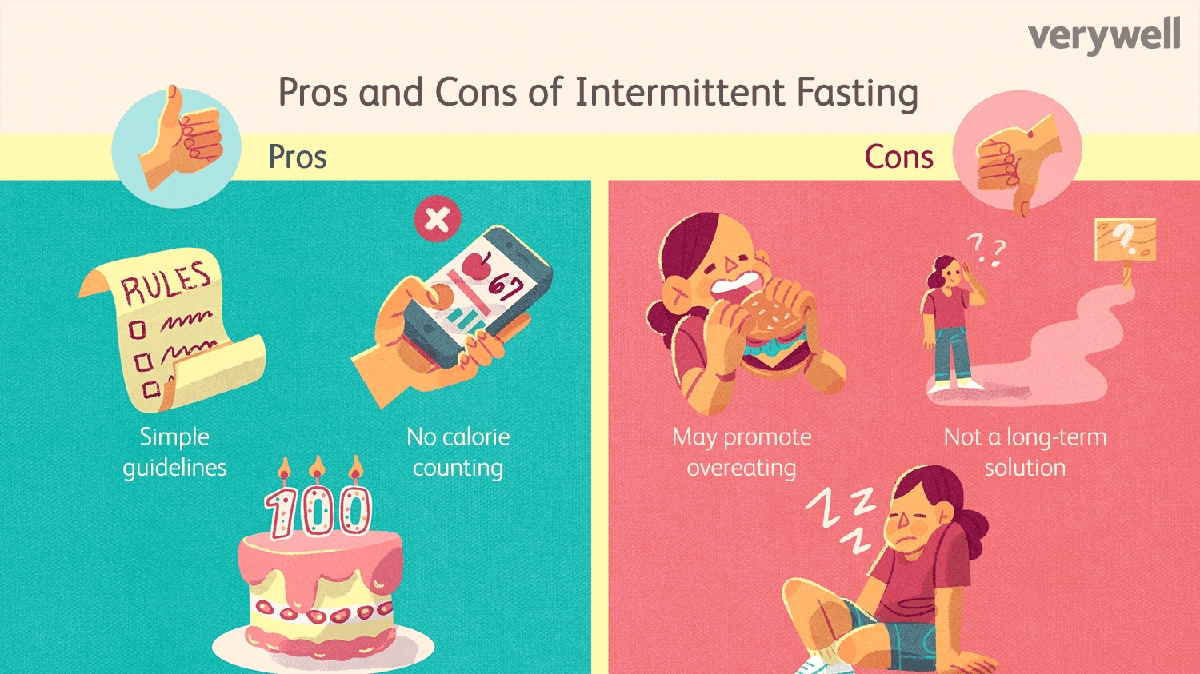
Intermittent fasting (IF), a popular diet trend, is gaining considerable attention due to its potential health benefits such as weight loss, increased metabolism, and reduced inflammation. The process of IF involves four stages: the fed state, early fasting state, fasting state, and the long-term fasting or starvation state, with each stage bringing about distinct metabolic and hormonal alterations. These changes can affect hunger, emotional well-being, and energy sourcing. Nevertheless, while IF can be beneficial for some, it’s not a universal solution and should be approached with caution, especially by individuals with certain health conditions.
Understanding Intermittent Fasting
Intermittent fasting is an eating plan where you alternate between eating and not eating for specific periods. There are various IF approaches, including time-restricted eating plans like the 16/8 plan, the 24-hour plan, or the 5:2 approach where you eat normally for five days and restrict your calorie intake for two days.
The science behind the effectiveness of intermittent fasting involves creating a calorie deficit and altering the timing of meals, which can influence how the body reacts. For instance, the fasted state could lead to the body pulling from the fat stored within as an energy source. However, it’s crucial to note that IF may not work for everyone, and its effectiveness can vary. A recent study published in JAMA indicated that both calorie-restricted dieters and intermittent fasters lost similar amounts of weight over a year.
Potential Health Benefits of Intermittent Fasting
Intermittent fasting has shown promise in improving various markers of health. It can help maintain healthy cholesterol levels, improve blood pressure, lower heart rate, and reduce inflammation, all of which are crucial factors for heart health. Some potential benefits of IF also include lowering blood pressure and reducing oxidative stress. However, the long-term effects of IF are still unclear.
It’s important to recognize that IF is not a guaranteed method for weight loss or a one-size-fits-all solution to health issues. It’s about creating a sustainable lifestyle that incorporates mindful eating, regular exercise, and a commitment to listen to one’s body and its needs.
Precautions and Considerations
While IF has potential benefits, it’s not suitable for everyone and may pose risks for people with certain health conditions. For example, water fasting, a form of IF that involves consuming only water and resting, can lead to nutrient deficiencies and strain the kidneys. Extended water fasting can even be fatal, causing changes in cardiac architecture and fatal cardiac arrhythmias.
It’s also crucial to remember that IF is not a suitable approach for individuals with certain medical conditions like diabetes. Therefore, consultation with a healthcare provider is highly recommended before starting any fasting regimen.
Tips for Successful Intermittent Fasting
For those considering IF, here are some tips. First, consider your lifestyle and educate yourself on the different approaches to IF. It’s crucial to eat well, drink plenty of water, and plan ahead. Finally, easing into fasting gradually can make the transition smoother and more sustainable in the long run.
In conclusion, while intermittent fasting offers a promising approach to improve health and manage weight, it should be approached with caution and under the guidance of a healthcare provider. By understanding the stages, potential benefits, and precautions, individuals can make an informed decision about whether IF is a suitable method for them.
